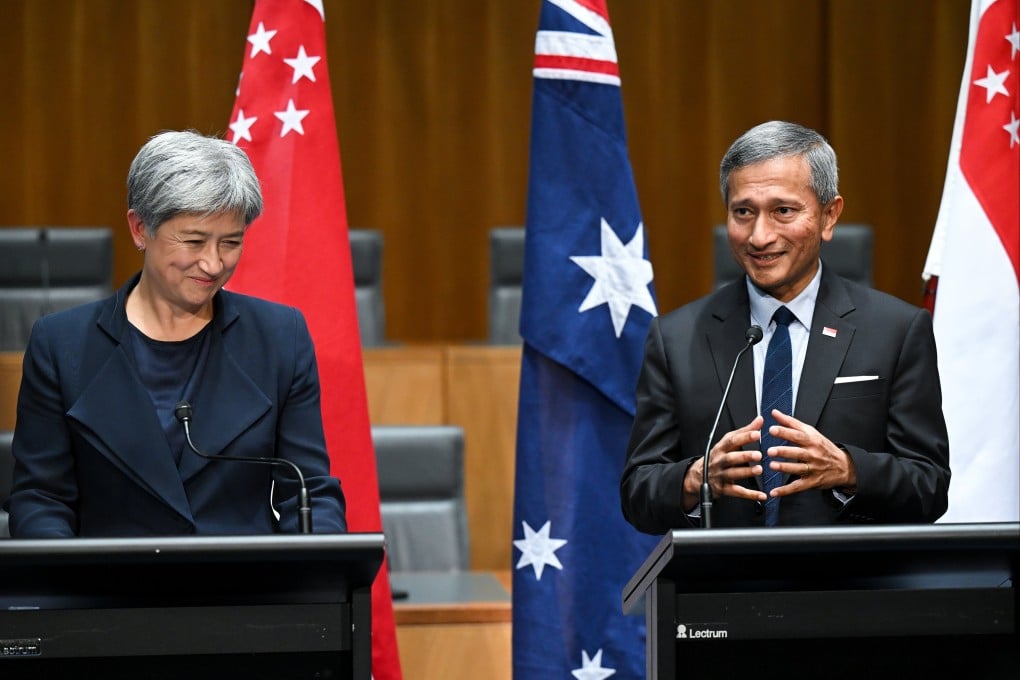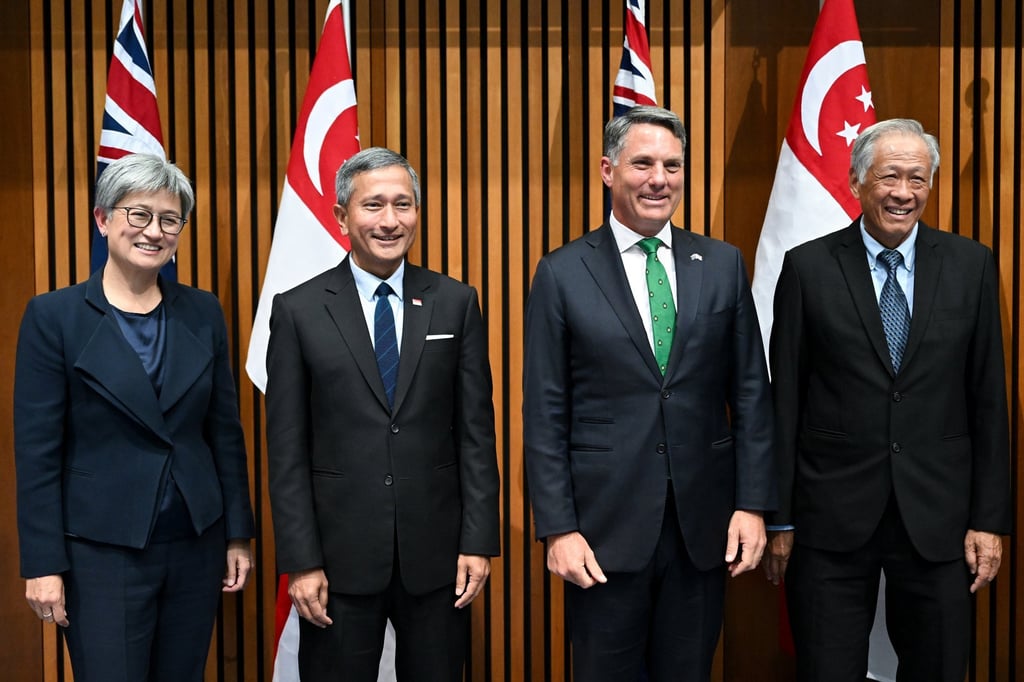Australia can play ‘stabilising role’ in Asia amid US-China tensions, Singapore ministers say
- Singapore’s foreign, trade and defence ministers held talks with their counterparts in Canberra ahead of a leaders’ meeting this month
- Singapore Defence Minister Ng Eng Hen said Australian military vessels – including its future nuclear-powered submarines – were welcome at Changi Naval Base

Singapore’s Foreign Minister Vivian Balakrishnan spoke glowingly about the state of bilateral ties in a press conference following the talks, saying both nations were complementary, “absolutely reliable” and trusted each other in a time of uncertainty in geopolitics.
“We fulfil our commitments to one another, and the level of trust which Australia has demonstrated to us, and I believe on a mutual basis, means all the more reason we need to double down on this,” Balakrishnan said.

Defence Minister Ng Eng Hen, part of the Singapore delegation that also included Minister of Trade and Industry Gan Kim Yong, said Australia “can play a bigger role in our region” amid the complexities of the current environment.
Australia was not just an “Indo‑Pacific country, but an Asian country” and Singapore “would welcome Australian ships and planes through our bases, and ultimately when your submarines are ready, we would welcome them to call on our ports”, Ng said.
“We believe that Australia adds to regional security in Asean and beyond,” Ng added. “We look forward to these very, very positive aspects, and thank you once again for your friendship and your confidence in each other.”
Asked whether Singapore would welcome Australia’s nuclear-powered submarines – to be procured under the Aukus security pact with the United States and Britain – Ng said those would not be the first such vessels to call at the city state, citing US nuclear-powered submarines that already call at Changi Naval Base.